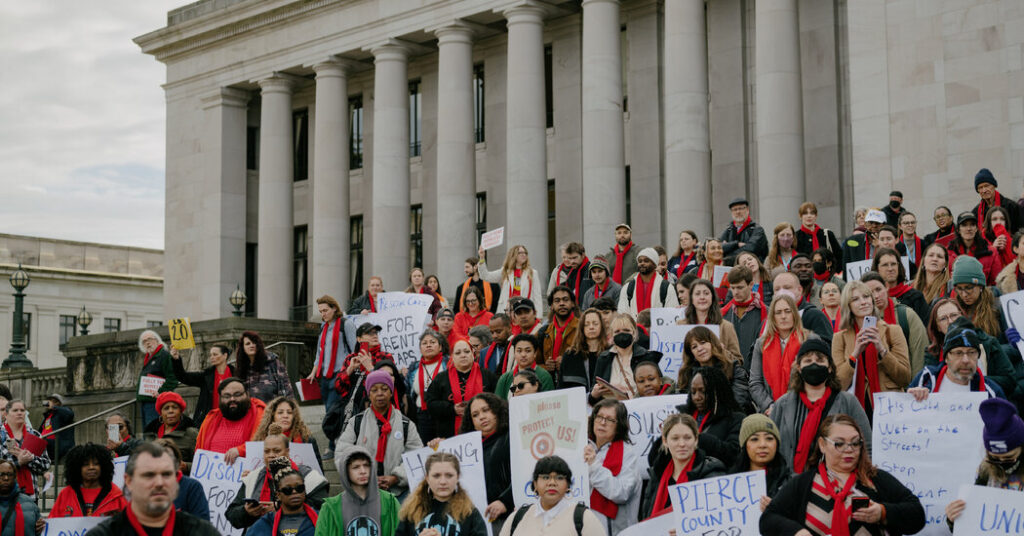After a lengthy discussion, lawmakers in Washington State voted on Sunday to restrict yearly rent increases for residential properties to a maximum of 10 percent. This move positions the state as the third in the nation to implement statewide rent controls.
Details of the Legislation
Key elements of House Bill 1217 include:
Rent increases will be limited to 7 percent plus the inflation rate, or 10 percent total, whichever is lower.
Homeowners in mobile home parks will see a flat annual increase of 5 percent on the land they rent.
The new regulations will apply only to lease renewals. Landlords can raise rents freely when properties are vacant.
For the first 12 years of occupancy, new buildings will not be subject to these rules.
Support for the Bill
From 2001 to 2023, median rents in Washington State increased by 43 percent after adjusting for inflation, outpacing the 26 percent rise in renters’ wages over the same period, as reported by the Center on Budget and Policy Priorities, a nationwide research organization.
While there is a shared belief that more housing needs to be constructed, supporters of the rent cap argue that it provides immediate stability and safeguards for tenants affected by rapidly rising costs.
This issue has long been a priority for Democrats, with a similar bill nearly passing in 2024. However, given the current economic challenges, advocates believe the situation is more urgent than ever.
“During a time when many are anxious about losing federal benefits, we can ensure that in Washington, excessive rent increases won’t occur,” stated Emily Alvarado, a Democratic state senator and one of the bill’s proponents, during a debate on Friday.
Opposition to the Bill
Economists have traditionally questioned the effectiveness of rent control, arguing that it can often be detrimental. However, opinions have begun to shift in recent years.
In Washington, those against rent regulations warn that such measures could deter new housing projects and limit rental options. Over the years, Republicans, alongside some moderate Democrats, have thwarted various initiatives.
However, after last year’s elections, progressives gained greater influence and have pushed for policies that include tax hikes and budget cuts.
Republican state representative Andrew Barkis remarked that the new bill is “motivated by ideology.” He stated that a previous version, proposing a 10 percent cap plus inflation and excluding most single-family home rentals not owned by corporations, was more beneficial. That version had already cleared the Senate.
“Implementing an artificial cap will ensure that every rent will increase,” Mr. Barkis added.
National Context
Historically, rent controls have been adopted at the local level rather than statewide. Over 300 municipalities, including major cities like New York, Los Angeles, and San Francisco, have established rent regulations.
When states do intervene, it’s often to prevent local areas from implementing such regulations. More than 30 states have taken this approach, including Washington, which prohibited local rent regulations back in 1981 under Republican leadership.
The new bill, which survived some last-minute challenges and was approved on the last day of the legislative session, does not remove that prohibition. Instead, it aims to protect renters throughout the state, especially in communities that may lack the capacity or willingness to implement their own measures.
Until now, only California and Oregon had statewide rent regulations, both of which were enacted in 2019. Oregon’s cap is 7 percent plus the inflation rate, while California’s is 5 percent plus inflation; both states have a maximum cap of 10 percent. However, there are movements in both states to reduce these caps.
Next Steps
The bill will be sent to Governor Bob Ferguson, a Democrat who assumed office this year. Although he hasn’t disclosed his stance yet, many lawmakers and lobbyists expect him to sign the bill. Once signed, it would take effect immediately.


